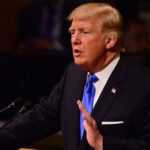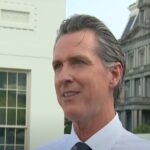



Due to health complications, Former President Jimmy Carter will miss President-elect Donald Trump's inauguration despite his initial intention to attend.
USA Today reported that Former President Jimmy Carter, aged 100 and in hospice care for nearly two years, cannot fulfill his wish to attend Donald Trump's upcoming January inauguration.
This situation highlights Carter's longstanding commitment to supporting presidential transitions, a tradition he has maintained throughout various administrations.
Carter, diagnosed with cancer that spread to his brain in 2015, represents the spirit of bipartisan participation in national ceremonies.
His presence at previous inaugurations, including Trump's first in 2017, underscores his dedication to democratic norms and the peaceful transfer of power.
Despite his willingness, Carter and his wife also missed President Joe Biden's inauguration due to similar health reasons.
This consistent pattern of attendance, when possible, establishes Carter as a figure of continuity and respect across political divides.
Former Presidents George W. Bush and Barack Obama have not made public their plans concerning the upcoming inauguration. The silence from these leaders contrasts with Carter's clear and expressed intent to participate, health permitting.
Representatives for Bill Clinton, another former president, have kept silent on his attendance plans. This uncertainty adds another layer to the typical ensemble of former national leaders expected at such events. By contrast, Clinton acknowledged Trump's electoral victory and emphasized the importance of a peaceful power transfer.
Bill Clinton recently spoke on "The View," advocating for cooperation and caution in political confrontations, saying, "I do not think we should just be jamming them, even though they do that to us a lot. I think it's a mistake." This statement perhaps hints at a broader perspective that might influence his decision about attending the inauguration.
Former President George H.W. Bush also missed Trump's first inauguration, citing age and health issues. This precedent of health influencing decisions about attending such national events is not new among presidential figures.
President Joe Biden, however, has confirmed his attendance at Trump's second inauguration, participating in the traditional transition customs. This adherence to tradition by Biden showcases the ongoing support for established protocols despite past political tensions.
The transition phases have been marked by the usual courtesies, even though Trump has historically deviated from some of these customs during his time in political office. Biden's commitment reflects a return to more traditional presidential behaviors that emphasize unity and cooperation.
While former President Jimmy Carter's health precludes his presence at President-elect Donald Trump's second inauguration, his spirit of participation continues to influence American political norms.
His example sets a significant benchmark for past and future leaders, highlighting the importance of supporting the ceremonial passage of leadership regardless of political affiliations.
Carter's absence will be felt by many who have respected his long service and constant dedication to the smooth governance of the United States.
As the nation moves forward, the principles exemplified by Carter's intentions remain a guiding light for the continuity of democratic values and bipartisan respect in American politics.



